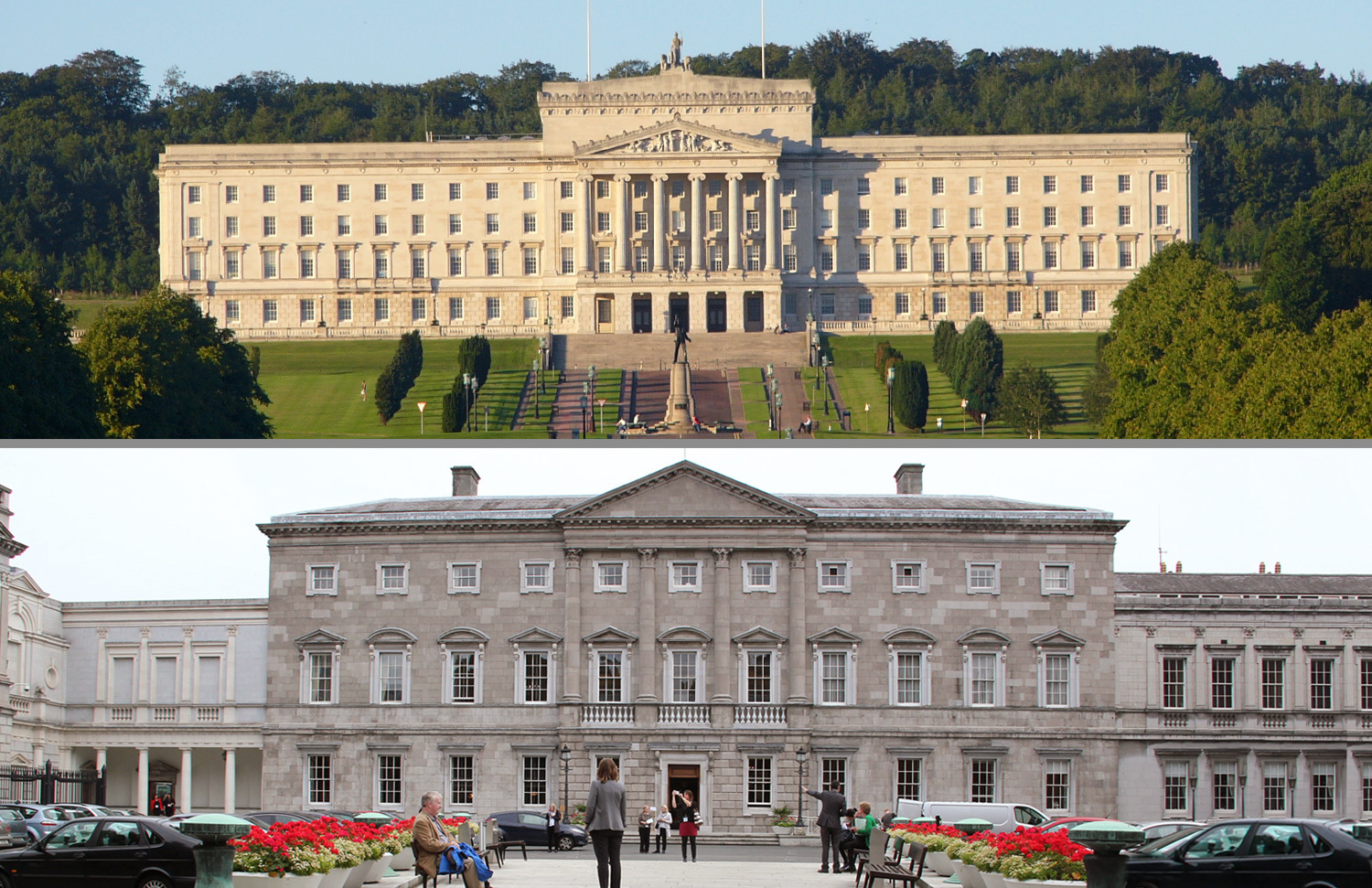IN MANY ways the first week of official campaigning in the Republic's general election appears all so familiar – lots of wild promises and oodles of jargon.
But the core pre-election issues of healthcare, housing, taxation and the economy have been sidelined by a hail of gunfire.
The gangland feud that has left two men dead in tit-for-tat murders has had every political party toting their law and order credentials and rounding on opponents.
The government coalition of Fine Gael and Labour has been criticised for cutting garda numbers; Fianna Fáil for creating the conditions for the cutbacks, but most of all Sinn Féin for advocating the abolition of the non-jury Special Criminal Court.
Just when it looked like the party had managed to distance itself from the past and although groups such as Amnesty International and The Irish Council for Civil Liberties also support this policy, Sinn Féin's stance has provided its opponents with a ready-made stick to beat it with.
The party, which is aiming to double its current quota of 14 seats, will desperately want to shift the ground but for obvious reasons its rivals will be keen to keep the pressure on.
The sentencing of Thomas ‘Slab’ Murphy on tax evasion charges in a high profile case at the 'special crim' will not help in this regard and the decision today to defer the hearing to February 26, which is also polling day, raises major questions of how that might play out as voters go to cast their ballots.
Ironically given the attention on gangland violence in Dublin, ahead of the election rural rather than urban crime had been the focus.
The government had pledged to deploy more than 250 souped-up garda cars to patrol the motorways out of the capital that have become known as “the corridors of crime” for violent gangs of burglars terrorising isolated communities.
Drugs, extortion and gangland killings in Dublin rarely rated a mention beyond tabloid headlines, but the recent brutality caught many by surprise and pushed crime up the agenda.
RUNNING MATES
In the political horse race, Fine Gael is clearly out in front: the economy is on the up, unemployment is falling, and the numbers needed to form a government don't look like stacking up for the rest of field.
The only question at this stage seems to be whether Fine Gael will have a credible partner to return to power.
As the main coalition party from the outgoing government, it is portraying this election as a clear choice between stability and a chaotic hotpotch minority of smaller parties and independents.
The electorate don't appear to be altogether buying this argument. After almost a decade of biting austerity, the debate is now about how best to shape the future.
Analysis of the latest opinion polls indicates a hung parliament remains the most likely outcome after the February 26 vote. Fine Gael's current Labour Party coalition partner has 33 seats but the best it can expect is to reach the mid-teens next time around, although many believe its tally of seats could fall to single figures, with even its leader Joan Burton struggling to return.
Polls suggest Sinn Féin and Fianna Fáil would not have the seats to form a government – even if they were prepared to work with each other.
There is still a lot to play for.
THE CAMPAIGN AHEAD
Following the recent murders, armed gardai have been drawn from other duties to bolster security on the streets of Dublin. There is shock at the nature of the violence, at the subsequent threats to individual journalists, and concern that further attacks could take place.
But despite the continuing fears, it is also true that gang violence has been a long-term threat - as highlighted by those groups working in communities blighted for decades by the drugs trade.
Behind the electioneering is the long-running political failure to get to grips with the issue.
Barring a renewed upsurge in gang violence, there is every prospect that the last two weeks of the campaign will be dominated by who benefits most from the economic recovery.
In this regard, Sinn Féin made the early running.
Like death and taxes, it has been impossible to escape the so-called 'fiscal space' in the political debate since the election was called.
Basically, the buzzword denotes the amount the next government expects to have available to it over the next five years for spending and/or tax cuts.
The parties all had wildly varying projections for the total, ranging from €8.6 to €12 billion.
Most analysts reckoned Sinn Féin's €8.6 billion projection was the most realistic.
This was in stark contrast to the 2007 election campaign when opponents sought to dub the party as ‘economically illiterate’.
Gerry Adams wasn't slow this time around to take the plaudits and call out the other parties over their figures, accusing them of “cooking the books”.
At least it appeared Sinn Féin knew how much money they had to work with.
How long serious crime continues to dominate the election debate, at the cost of other issues, will depend on events on the streets.
With only two weeks to go before the February 26 polling day, there is still room for significant developments.
Few could have foreseen the tragic events that brought law and order to the centre of the election debate but other variables may be more predictable.
For instance, Fine Gael in particular will be praying that a late winter cold snap will not be the tipping point for already overcrowded A&E departments, thus focusing public attention on a crisis in health services.
A bout of flu might prove a challenging hurdle, even for a party so clearly out in front.
So far, events outside politics are setting the pace in this race.
